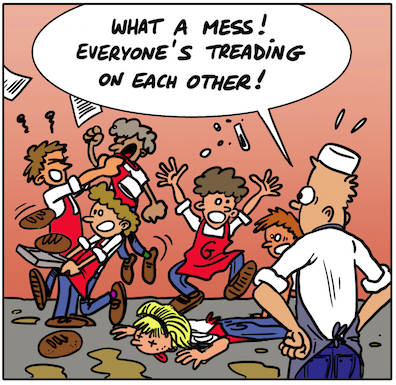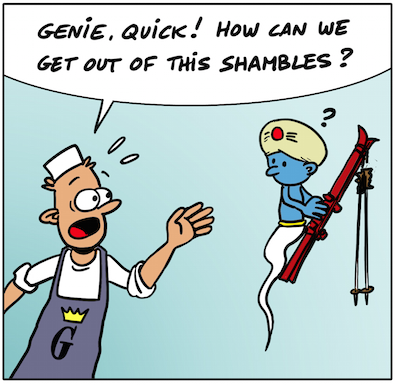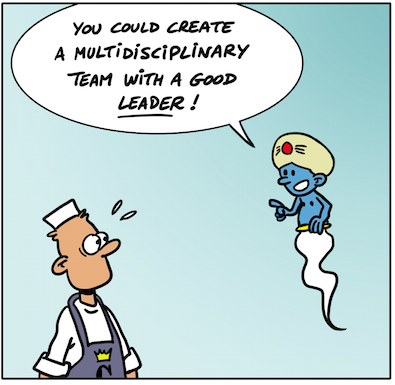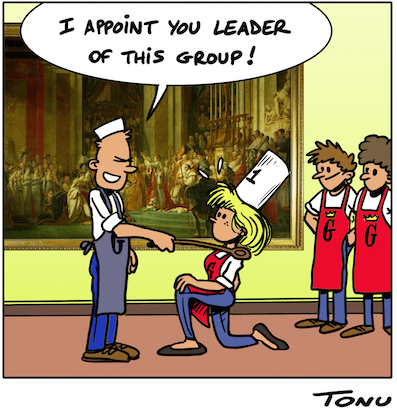-
Any innovation is an iterative compromise between business hopes and technical possibilities
In a slowly-changing world, we can gradually improve the existing Products and Processes by successive touches. As we remain in a known environment and as the changes are gradual, we can proceed using a classic Approach, of a sequential kind (or "waterfall").
- The Strategists define the Goal
- Marketing defines the new Product
- The Project owners translate the new Product or Process definition into specifications
- The organization defines the roles and allocates the tasks
- The IT staff build or adapt the software according to the specifications
- The testers validate the Solution
- The HR department trains the staff
In a rapidly-changing world, we cannot use the same method: task serialization is a handicap to speed and the objectives may be called into question depending on the unpredictable success of the new Model.
It therefore becomes more efficient to group together, in a single team, all the intervening parties of the Transformation: Strategists, Marketing, Organization, IT, change management, HR...The dynamic compromise between business hopes and technical possibilities emerges through successive iterations, within the same team.
-
Can we function with distributed teams?
A Project team always works best when its members are located in the same building. But it is not always possible.
We can, nonetheless, apply an agile approach between distributed teams if they share efficient communication tools, not only between individuals but also between Models.
Ideally, we should provide each local team with a local repository and aggregate the contributions from each local team at a Central level, in a global repository, which manages versioning, consistency and provides the Views that each person wants. -
The versatile team must have one, and only one, leader
We cannot carry out a Transformation quickly if the decisions are not fast. A leader is necessary. But what profile should we give preference to for this leader?
It is difficult to find the rare bird who is able to understand all of the disciplines. And yet it is the lot of the boss of the enterprise start-up to associate these talents, while at the same time gaining respect through his/her Competence, ability to make clear decisions in an uncertain environment and natural leadership.
The simple qualities of administrator are not enough, we also have to understand the new Enterprise Models in order to know how to criticize or perfect them.

The story of George the Baker is made available under the terms of the
Creative Commons Attribution - NoDerivatives 4.0 International license.



